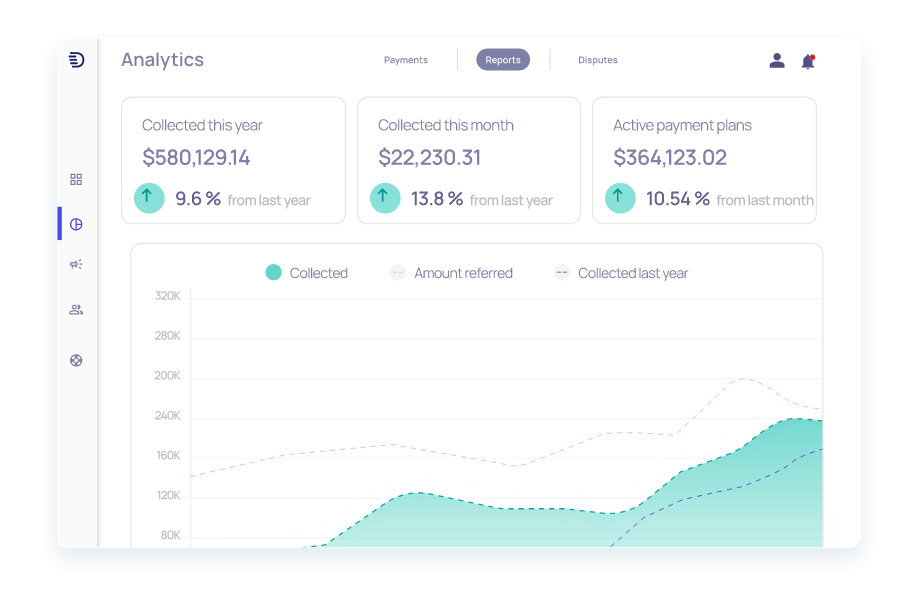3 tips for evaluating a Reg F compliant debt collection vendor
The Consumer Financial Protection Bureau’s passing of Regulation F has increased restrictions on traditional call and collect debt collection practices. Debt collection strategies centred on high volumes of voice calls were already becoming outdated as consumers increasingly prefer omnichannel communications. Reg F solidifies the end of traditional debt collection – so what’s next?
While Reg F brought in new regulations on voice call collection practices, it also gave the green light on electronic communication with consumers. This opens up the opportunity for businesses to meet consumers’ demand for communication via email and SMS. It also introduces a host of new criteria to consider as you evaluate debt recovery partners.
Here are a few questions to ask as you consider the right solution for your business.
1. How is call volume and timing being tracked?
Reg F’s guidelines largely restrict how often and at what time of day a customer can be contacted via a voice call. Traditional agencies often rely on manual tracking to monitor these metrics, leaving room for error and exposing a business to risk of noncompliance.
Modern debt recovery solutions are rooted in technology, with more advanced solutions building compliance rules directly into the system. Not only can communications be more closely monitored this way, but the risk of accidental, noncompliant outreach is eliminated. Technology-based solutions are also ideal for businesses managing compliance rules in a variety of jurisdictions, making scaling compliance much more straightforward.

2. When are customer service representatives available for your customers?
Many agencies have representatives only available during normal business hours, sometimes even further restricted by a specific timezone. This limits customers’ ability to get questions answered or make payments outside of those hours, dragging out the collections process and providing a subpar customer experience. The right partner for your business will have availability either live with a representative and online. At the very least, the Customer Service team you’ll leverage should be available for questions in the local timezone of your required markets for a convenient customer experience, and options should be available for customers to make payments online.
3. How are the individual customer service reps incentivised?
It’s rare for traditional debt collection agencies to measure customer satisfaction, and even rarer for their reps to be incentivised on that metric. Most often, these reps are motivated strictly on recovery rates, which has the potential to yield more complaints from customers who are distressed by pushier tactics to collect.
Debt collection partners who prioritise customer satisfaction as a key performance indicator give businesses a few benefits: operational efficiencies due to a reduction in customer complaints, a more positive brand sentiment, and higher recovery rates. You’ll get a good idea for the experience your customers will have with your debt collections partner with a simple Google Search – often the reviews are very telling.
Technology’s impact on the future of debt collection
Beyond Reg F compliance, another crucial step in vendor evaluation is to understand how that agency uses technology throughout the collections process from a customer-facing perspective. More specifically, how they’re using AI and machine learning to develop an intelligent debt collection process and improve customer experience.
Intelligent debt collection offers a huge advantage in communicating with customers because it provides every single customer with a personalised experience. By understanding the customer’s individual behavioural tendencies, communications can be delivered at the perfect time for them to take action, via a channel they prefer, increasing the likelihood of engagement.
While a tech-fueled collections strategy certainly benefits the customer, it also supplies businesses with superior recovery rates, better data for analysis, and decreased compliance risk. Therefore ensuring your partner in debt recovery prioritises a digital-first approach is essential criteria for selecting a vendor.
How intelligent debt collection supports Reg F compliance
With regards to Reg F specifically, InDebted has been prepared from the start. With a digital-first, consumer-centric approach, InDebted has been able to provide a 40% increase in returns for customers (even before Reg F entered the scene). InDebted places a priority on customer satisfaction, ensuring customers have a positive experience throughout the collections process.
Additionally, we prepared an in-depth analysis of Reg F and created a Reg F Committee to ensure that all potentially impacted business practices were investigated and ensured to be in compliance. InDebted continues to audit for compliance to ensure all company policies and procedures are working as designed.
See how Collect worksJoin our newsletter for the latest collections insights

Thank you for subscribing!
Join our newsletter for the latest collections insights

Thank you for subscribing!
Share
Other resources
5 expert-backed tips for working with multiple collection agencies
Diversifying your collections panel can be a game changer for your organisation.AI debt collection vs. traditional methods: what's different?
While traditional debt collection is increasingly seen as out of touch, a new generation solution is disrupting the landscape — AI-powered debt collection. It puts the power back into customer’s hands, to manage their debt their way.Improving collections strategy by 30% with machine learning
Contacting customers digitally to recover overdue accounts is one way to improve your customer experience. But predicting how each customer prefers to engage, and adapting each step of their journey accordingly takes your collections to entirely new levels of personalisation.The state of financial wellbeing in Australia, the United Kingdom and the United States, and how collections can support
How are your consumers coping financially? See the state of financial wellbeing across key markets, featuring the latest insights and practical actions for supporting stretched customers.
